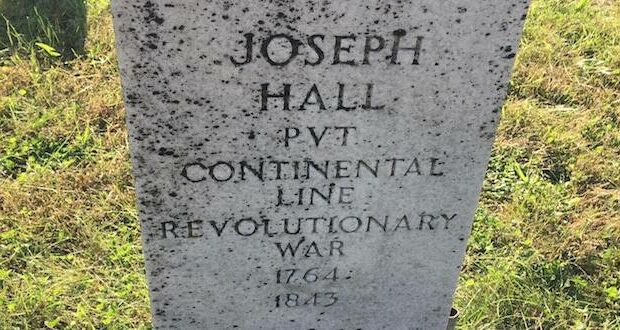General Order Number 11, the attempt to destroy the history and peoples of Cass, Bates, Vernon, and parts of Jackson County, Missouri cannot be forgotten.
While the action of the Union may have destroyed the trappings of history, banishing, and killing residents, and destroying buildings and farmsteads of all rural residents, the histories live on in the history books and the one place that could not be destroyed, the cemeteries.
To deny rebel sympathizers access to support the Union Army conducted a war of ethnic cleansing so efficiently that it lasted less than a year. It was initiated three days after Quantrill and his rebels burned and destroyed Lawrence, Kansas and punished Americans without regard to their allegiance, Confederate or Union.
Books and artwork in the Truman Library depict the horror, as well as a large mural in the Pleasant Hill, Missouri Post Office. While historical writings have tended to soften it, what cannot be softened are the names and dates that appear in area cemeteries. Americans do not desecrate cemeteries, and cemeteries tell the stories of men and women who lived and died through history. In this case, they are testament to the Americans, without consideration of race, creed, color, or even political allegiance, were targeted by an order of Congress.
On Memorial Day we honor those who fought, whether we won or lost. We honor soldiers who died as well as soldiers who survived the battles. However, more than that and often forgotten are those who supported the soldiers: the women that riveted airplanes, loaded ammunition, worked in foundries, and they have as much to do with Memorial Day as the ones who were on the front line. We honor the pastors that prayed for their congregations actually on the front lines, and others who endured hardship in supplying the war efforts. We honor those from our earliest battles all the way though the War on Terror. We owe them all a debt of gratitude.
Confederate soldiers and their families
Confederate soldiers and sailors were never granted veteran status after the Civil War, but they are still part of our history and memory. They lie side by side in our cemeteries, in most cases, without distinction as to allegiance, so perhaps they should be honored on Memorial Day. They are still part of our history and collective historic memory. It was Americans that restored the German graves at Normandy, not the French. Americans honor the graves of allies and enemies alike. We take no honor in destroying a defeated enemy.
READ: Revolutionary War Heroes of Missouri and Kansas
There are several cemeteries around Cass County, some in various states of disrepair. Some still welcome additional friends and neighbors and all are a part of history and a memory we do not wish to lose. Some are accessible only through permission of the landowner, and some have been lost that were part of family homesteads now under suburban neighborhoods.
Most hold the civilian victims of Order No. 11 and the Civil War.
The cemeteries listed near Pleasant Hill, in addition to the Pleasant Hill Union Cemetery (which also contains the grave of a Revolutionary war hero), are the Reed Cemetery of State Route E, the Riffel Farm Cemetery between Cedar and Oak and Jefferson and Randolf in Pleasant Hill, the Staley mound Cemetery off East Staley Mound Road, and Union Baptist Cemetery off 175th Street. There are additional cemeteries in Strasburg, East Lynne, and other parts of Cass County, and there is even a register to locate the graves of those buried. Some of these cemeteries are on private property, so if you intend to visit, please contact the landowners first. These people were all citizens of Cass County, all part of our history, and all due honor on this Memorial Day.
We have our books, buildings, and surroundings that remind us of our history: the battles of Gettysburg, the battles of Bull Run, Westport, Normandy, the Bulge, the Philippines, Wake Island, and others can all be studied in books. It is the cemeteries that bring meaning and truth to what we call history.
I have never been so moved as being at the American Cemetery at Normandy at closing, 75 years after the battle, seeing the graves of 18 to 25-year-old men that died, giving everything, protecting America, and fighting for what we believe in.
While history books can be written to expound on freedoms and liberties, tells stories, and even entertain us, cemeteries present the undeniable facts of human cost, the men and women that perished for our benefit.
 Metro Voice News Celebrating Faith, Family & Community
Metro Voice News Celebrating Faith, Family & Community










